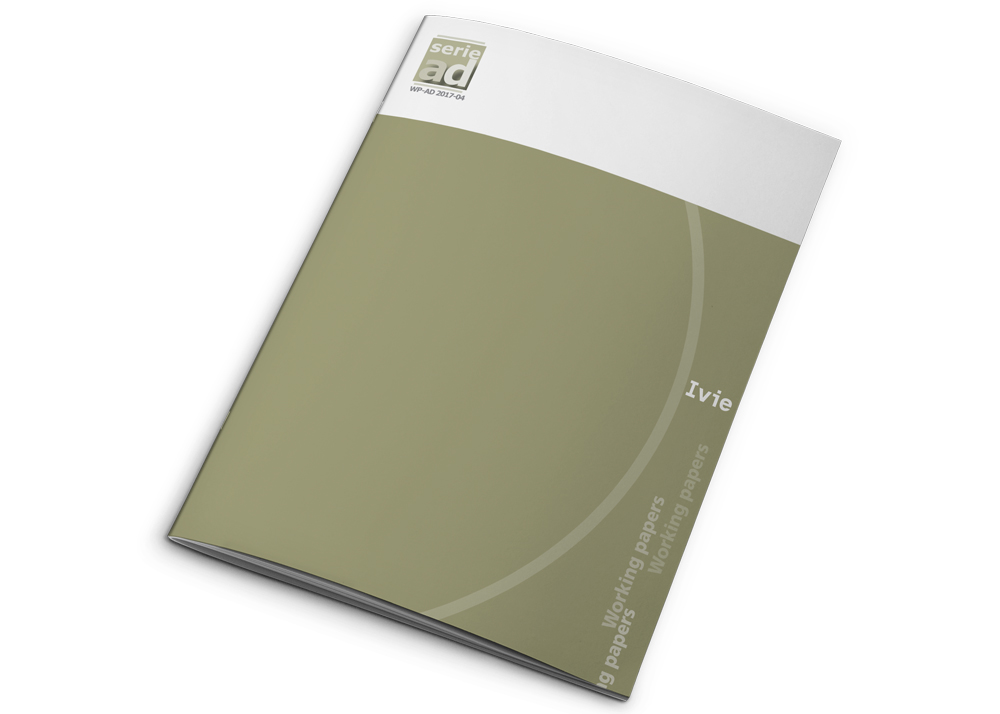Esta web utiliza cookies para que podamos ofrecerte la mejor experiencia de usuario posible. La información de las cookies se almacena en tu navegador y realiza funciones tales como reconocerte cuando vuelves a nuestra web o ayudar a nuestro equipo a comprender qué secciones de la web encuentras más interesantes y útiles.
Publicaciones

WP-AD 2012-19
Reconciling consumption inequality with income inequality
Lepetyuk, V. y Stoltenberg, C.A.
Año de publicacion: 2012
Palabras clave: Consumption Inequality, Prospect Theory, Limited Enforcement, Risk Sharing.
Clasificación JEL: E21, D31, D52
Resumen
The rise in consumption inequality in response to the increase in income inequality over the last three decades in the U.S. is puzzling to expected-utility-based incomplete market models. The two-sided lack of commitment models exhibit too little consumption inequality while the standard incomplete markets models tend to predict too much consumption inequality. We show that a model with two-sided lack of commitment and chance attitudes, as emphasized by prospect theory, can explain the relationship and can avoid the systematic bias of the expected utility models. The chance attitudes, such as optimism and pessimism, imply that the households attribute a higher weight to high and low outcomes compared to their objective probabilities. For realistic values of risk aversion and for chance attitudes found in experimental economics, the incentives for households to share the idiosyncratic risk decrease. The latter effect endogenously amplifies the increase in consumption inequality relative to the expected utility model, thereby improving the fit to the data.


